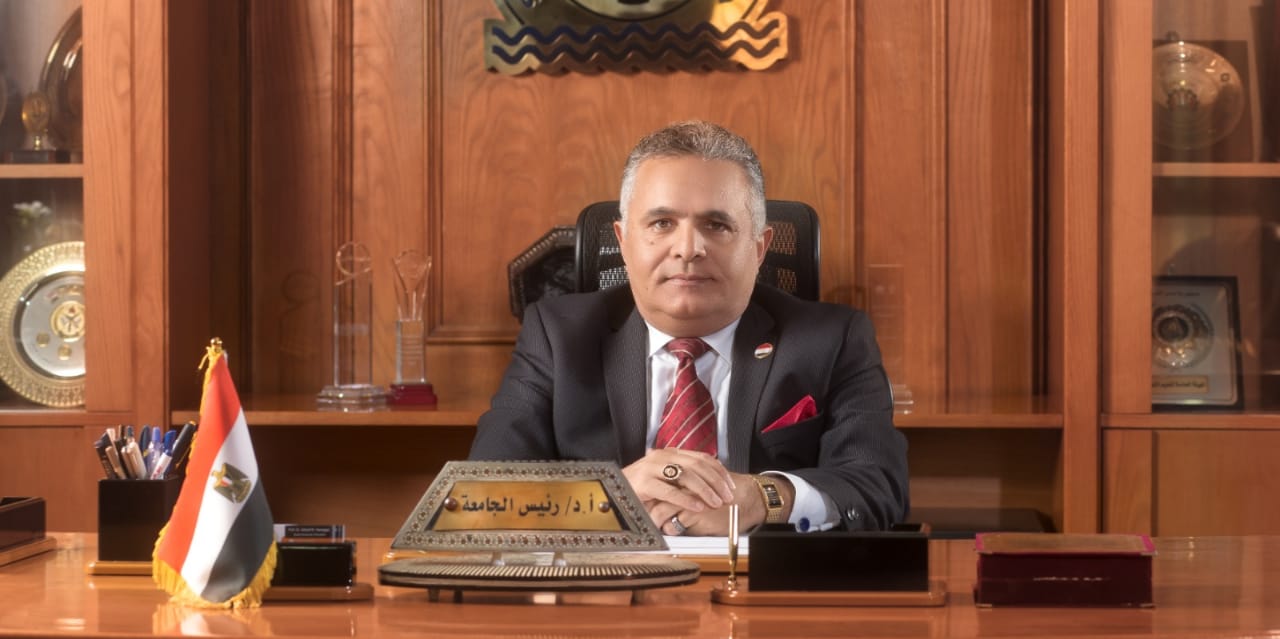
Prof. Dr. Ashraf Hnijal, SU President, says...
In 2012, Suez University was independent from Suez Canal University. At this time, it included only 6 faculties. As a university, we seek to develop new academic faculties and disciplines that serve the university's regions and all the children of Egypt. So far, we have reached sixteen faculties and institutes to keep pace with the requirements of the labor market.
We believe that academic study must have a positive return on the graduate so that he can find himself a suitable job opportunity.
The National Strategy for Higher Education includes seven main themes: integration, interdisciplinary disciplines, communication, effective participation, sustainability, international reference, entrepreneurship, and innovation. It makes us bear a great responsibility regarding the role of universities in the service of society, not only by providing qualified graduates to the labor market but also by employing the potential of universities to serve the surrounding environment to achieve the objectives of Egypt's ambitious sustainable development plan 2030.
For example, let's look at Suez University and its specializations for the labor market. The Faculty of Petroleum and Mining Engineering is the only faculty of this magnificence and potential at the level of Egypt and the region, as well as the Faculty of Technology and Education, which is one of the faculties embraced by Egypt's leadership vision, relies on it to provide qualified graduates in accordance with academic benchmarks in technology and industrial education; to meet the needs of the labor market.
Let’s consider the Faculty of Fish Resources. It is also one of the unique disciplines offered by the University to society, by preparing technical cadres in all fields of fisheries qualified for the labor market.
If we examine objectively some faculties that are perceived as stereotypical faculties and do not serve the labor market as much as hoped, for example, the faculties of commerce and literature, I can confirm that Suez University has for years been aware of the idea of developing these disciplines and working to remove them from the stereotype in the form that offers outputs capable of keeping up with the labor market.
For example, the Faculty of Arts, at present, is no longer interested in traditional, well-known humanities. It has been able to develop several new and strongly needed academic programs in the labor market, such as specialized and simultaneous English and French translation programs, as well as the Chinese Language Program and Cadastral and Geographic Information Systems Program. Soon, several other programs strongly needed in the labor market will be opened, especially for graduates of the Faculty of Arts such as the Clinical Psychology Program.
Prof. Dr. Ashraf Hnijal, SU President
